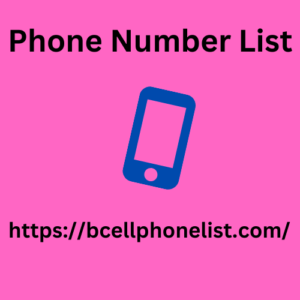A cloud database is aJapan Mobile Phone type of database service that operates on cloud computing platforms, allowing users to store, manage, and access data over the internet. Unlike traditional on-premises databases that are host on physical servers within an organization’s data center, cloud databases are host on the infrastructure of cloud service Japan Mobile Phone providers like AWS, Google Cloud, or Microsoft Azure.
Key Concepts Japan Mobile Phone of Cloud Databases
- Deployment Models
- Public Cloud: The database is host on the cloud provider’s infrastructure and shar with other tenants. It offers scalability and cost-effectiveness but may have limit customization.
-
The database is host
- Private Cloud: on a private cloud infrastructure, either on-premises or by a third-party provider. It offers greater control and customization but may be more expensive.
- Hybrid Cloud: Combines elements of both public and private clouds, allowing for a mix of on-premises and cloud-bas resources. This model Japan Mobile Phone Numbers Database provides flexibility and can optimize cost and performance.
- Database-as-a-Service (DBaaS): A manag service where the cloud provider handles database management tasks, such as backups, updates, and scaling. Users interact with the database through a The Rise of Online Phone web interface or API.
- Database Platform-as-a-Service (DBPaaS): Provides a complete platform for developing, managing, and deploying databases, including tools and frameworks. It offers more control compar to DBaaS.
-
Scalability and Elasticity
- Scalability: Cloud databases can scale resources (compute, storage, and memory) up or down bas on demand. This is achiev through the cloud provider’s infrastructure, which can dynamically adjust to varying workloads.
-
Types of Cloud Databases
- Elasticity: The ability to automatically adjust resources in real-time to accommodate changing data loads without manual intervention.



